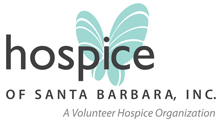Suicide Presents a Challenging Road to Healing for those Grieving from this Painful Loss
-Next Suicide Loss Support Group at HSB Slated for this January-
 SANTA BARBARA — Suicide is a leading cause of death among young people in the United States and approximately 1 million people die by suicide globally each year.
SANTA BARBARA — Suicide is a leading cause of death among young people in the United States and approximately 1 million people die by suicide globally each year.
Suicide is one of the top ten leading causes of death across all age groups. Worldwide, suicide ranks among the three leading causes of death among adolescents and young adults.
Losing a loved to suicide is one of life’s most painful experiences. The feelings of loss, sadness, and loneliness experienced after any death of a loved one are often magnified in suicide survivors by feelings of guilt, confusion, rejection, shame, anger, and the effects of stigma and trauma.
Furthermore, survivors of suicide loss are at higher risk of developing major depression, post-traumatic stress disorder, suicidal behaviors, and a prolonged form of grief called complicated grief. Thus, survivors may require unique supportive measures and targeted treatment to cope with their loss.
At Hospice of Santa Barbara, those who are dealing with the loss of a loved one from suicide are some of the more complicated cases they serve because of the layered emotional pain and responses they endure.
Under most circumstances, acute grief instinctively transitions to integrated grief within several months. This period may be extended for those who have lost a loved one to suicide. Notably, survivors of suicide loss are at higher risk of developing complicated grief which is associated with poor functional, psychological, and physical outcomes.
Suicide survivors often face unique challenges that differ from those who have been bereaved by other types of death. In addition to the inevitable grief, sadness, and disbelief typical of all grief, overwhelming guilt, confusion, rejection, shame, and anger is also often prominent.
These painful experiences may be further complicated by the effects of stigma and trauma. For these reasons, grief experienced by suicide survivors may be qualitatively different than grief after other causes of death.
Another common response to a loved one’s suicide is an overestimation of one’s own responsibility, as well as guilt for not having been able to do more to prevent such an outcome.
Parents who have lost a child to suicide can be especially afflicted with feelings of guilt and responsibility. The death of a child is among the most difficult type of loss a person can experience, particularly when the death is by suicide. Parents feel responsible for their children, especially when the deceased child is young.
One-on-one counseling at Hospice of Santa Barbara is recommended for those dealing with this loss. Talking through the myriad of emotions and trying to understand and come to terms with them is a particularly important and healing first step.
Many bereaved individuals report that it can be difficult to talk to others about their loss because others often feel uncomfortable talking about suicide and can’t relate to the experience.
A suicide loss Support-Group offers the bereaved an opportunity to support and be supported by others who share this uniquely difficult kind of loss – helping with difficult feelings like shame and regret without judgement,” said Michael Cruse.
For many survivors, participation in support groups is felt to be their only access to people who they feel can understand them, and the place where their feelings are acceptable and valid.
The universality of their experiences provides great reassurance that they are not alone in their feelings and that others have had similar experiences and have come out not only intact but often stronger. The bonds that develop among people can be extraordinarily strong as they join a special club where they offer each other mutual support.
For information about the Suicide Loss Support Group please contact 805 563-8820.
Hospice of Santa Barbara
Hospice of Santa Barbara provides professional counseling, support groups, and patient care services free of charge to individuals and families who are grieving the death of a loved one or experiencing the impact of a life-threatening illness. Hospice of Santa Barbara also provides counseling on fifteen local junior and high school campuses to children and teens who are grieving the loss of a loved one. For more information about Hospice of Santa Barbara including volunteer opportunities or to help support these free services, call (805) 563-8820 or visit www.hospiceofsantabarbara.org.
